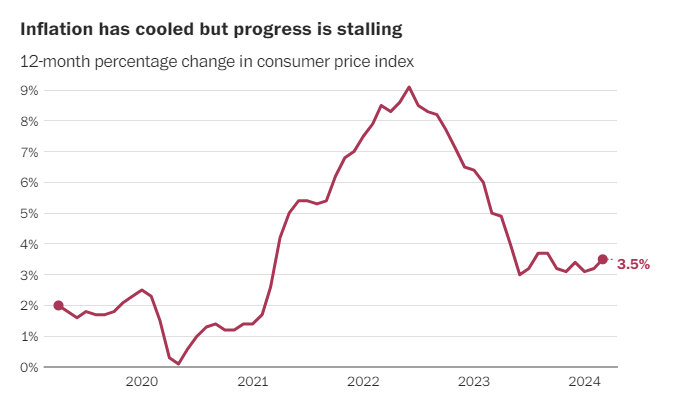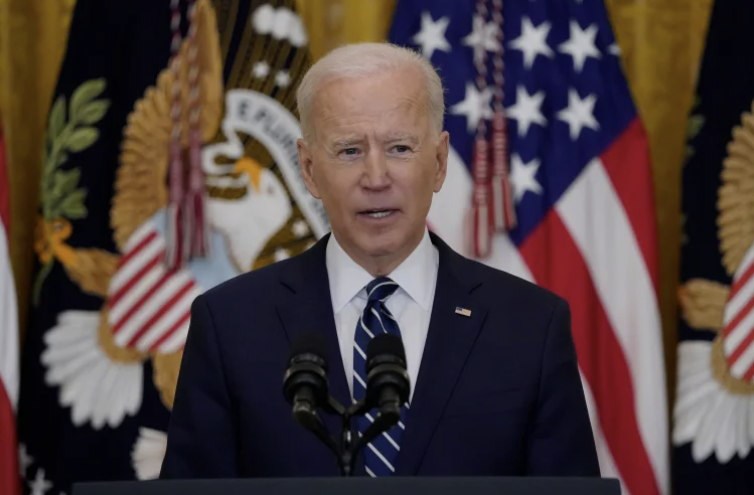President Biden has spent his presidency touting the country’s economic growth. But the economy’s unfettered strength is becoming more of a political liability for the White House:
Economic Challenges for President Biden
The current state of the economy is presenting significant challenges for President Biden, particularly as the country heads into a critical campaign season. Rising inflation and interest rates may persist well into the final weeks of the presidential election, affecting Biden’s prospects.
Inflation Trends and Impact on Policy
Recent data indicates a further increase in inflation during March, underscoring concerns of an overheating economy. Robust job growth, rising wages, and increased consumer spending are boosting the economy but contributing to inflationary pressures. This trajectory suggests that the Federal Reserve could maintain elevated interest rates until late in the year, potentially extending beyond the election period, limiting political advantages for Biden.

Impact of Gasoline Prices on Consumer Sentiment
Gasoline prices, a significant economic indicator for Americans, have been steadily climbing, currently averaging $3.63 per gallon. These escalating prices may already be influencing consumer sentiment negatively, as evidenced by a recent drop in April’s consumer sentiment index.
Economic Expansion and Inflation
A strong economic expansion can fuel inflation if consumer spending remains robust, leading to higher prices for goods and services. Despite inflationary concerns, Americans continue to spend on services like dining out and travel, prompting businesses to increase hiring and wages, further driving up prices.
Comparisons to Previous Administrations and Biden’s Response
Biden’s aides highlight that the current inflation rate of 3.5% is relatively lower than comparable points during the tenures of Presidents Clinton and Reagan. However, the administration remains focused on its agenda to lower costs for working families, emphasizing the urgency to address inflation and economic challenges.
Challenges in Economic Messaging
Throughout his presidency, Biden has faced challenges in effectively communicating his economic policies. Initially describing inflation as “transitory,” the administration later attributed rising prices to “Putin’s price hike” following Russia’s invasion of Ukraine. Biden’s efforts to rebrand “Bidenomics” to highlight economic successes have been met with mixed results amidst ongoing economic uncertainties.
Economic Policies and Legislative Accomplishments
Despite passing significant legislation like the infrastructure law and the CHIPS Act, aimed at revitalizing infrastructure and boosting the semiconductor industry, Biden’s team is frustrated by the perceived lack of recognition for these achievements. Internal divisions over economic messaging came to light recently, reflecting broader challenges in addressing Americans’ economic concerns.
Fed Policy and Future Outlook
Market reactions this week signal that expectations of immediate rate cuts have diminished, with forecasts suggesting the Fed may delay interest rate adjustments until December. Biden’s public comments on the Fed’s actions underscore the administration’s interest in managing economic policies while respecting the central bank’s independence.
Election Dynamics and Economic Forecasts
The upcoming presidential election adds another layer of complexity to economic forecasts, potentially influencing the Fed’s approach to policy changes. Investors anticipate caution from the Fed to avoid any appearance of favoritism towards political candidates, indicating a conservative approach to rate adjustments in the coming months.
Credits: washingtonpost.com

